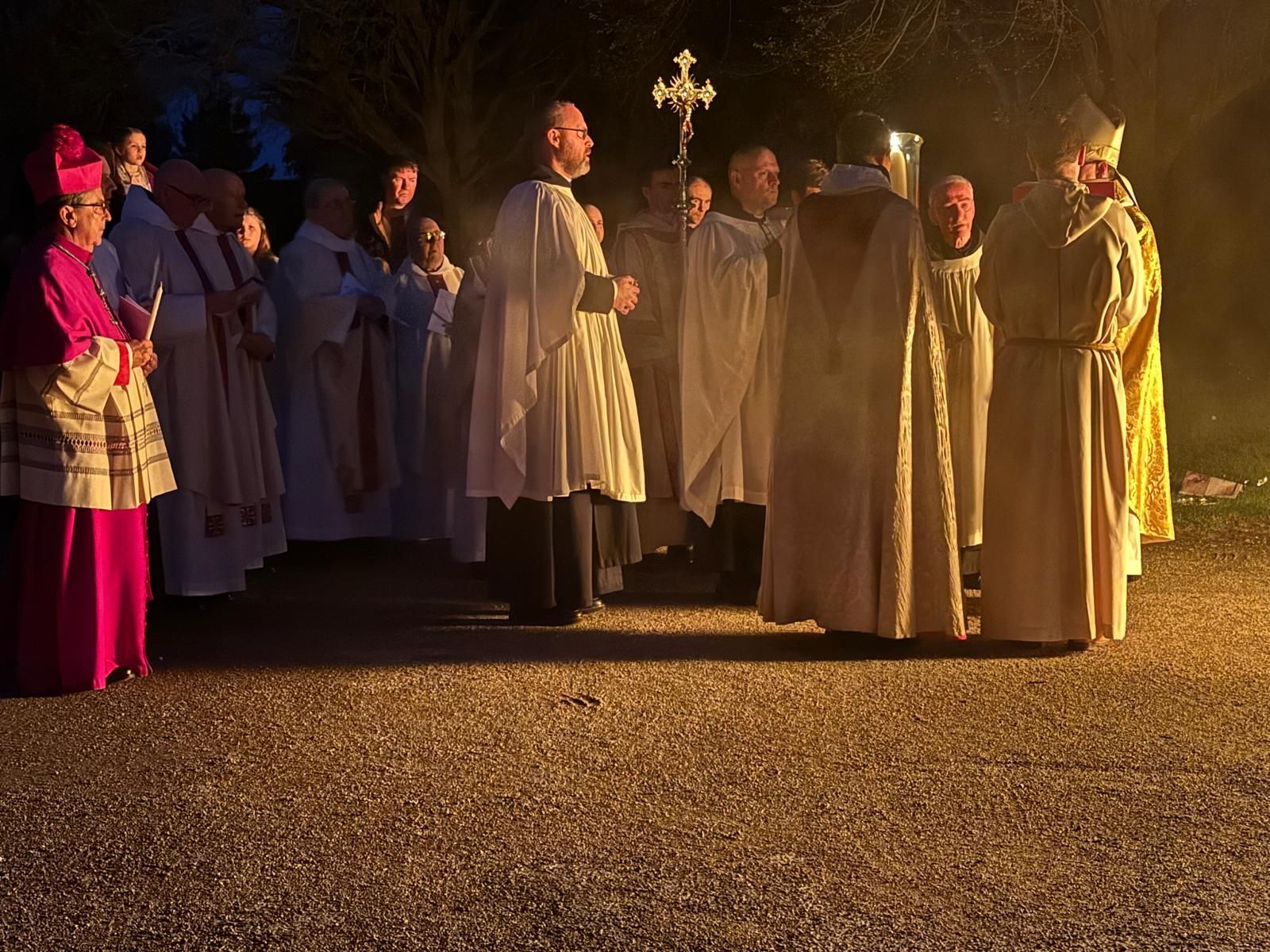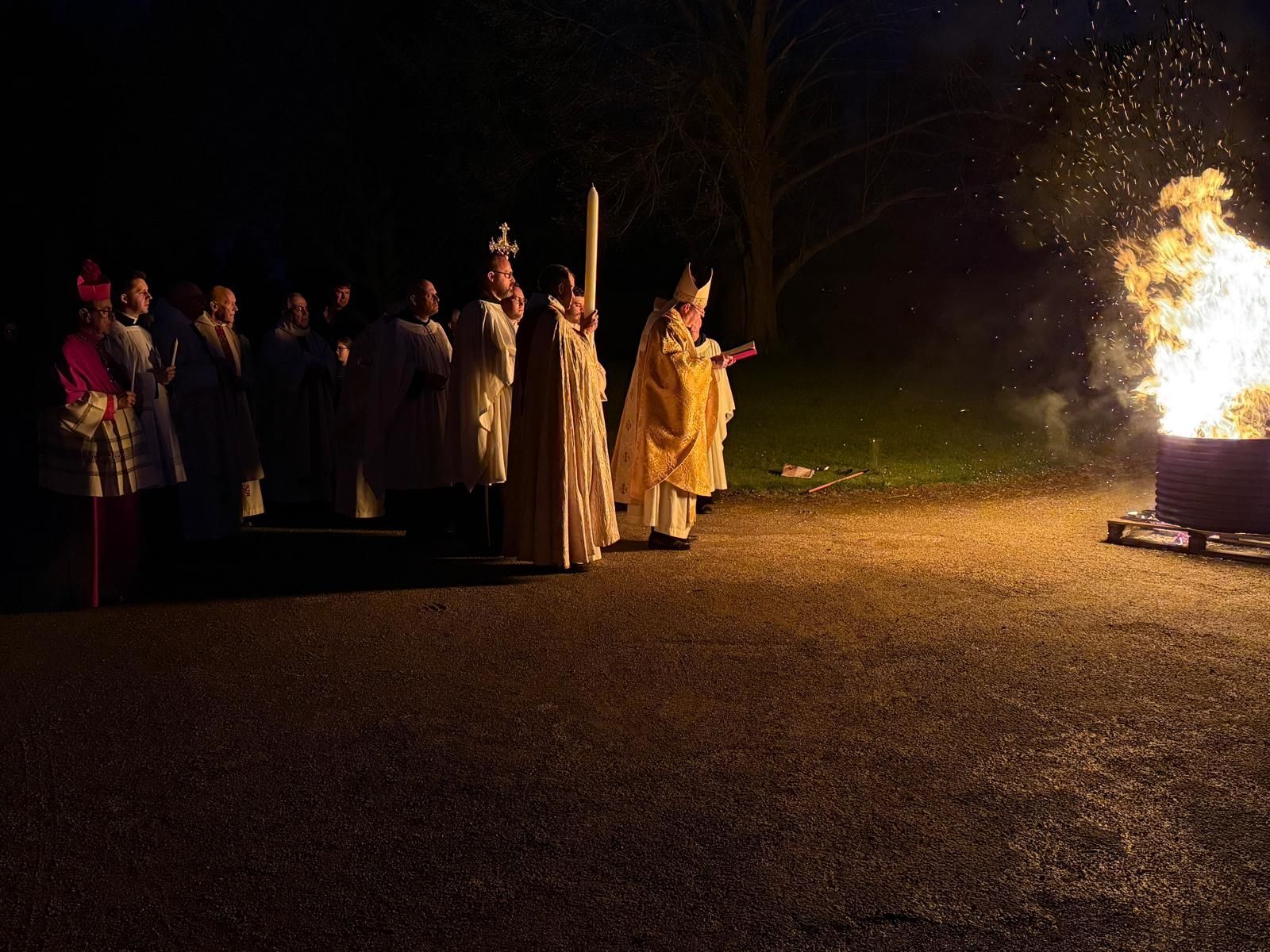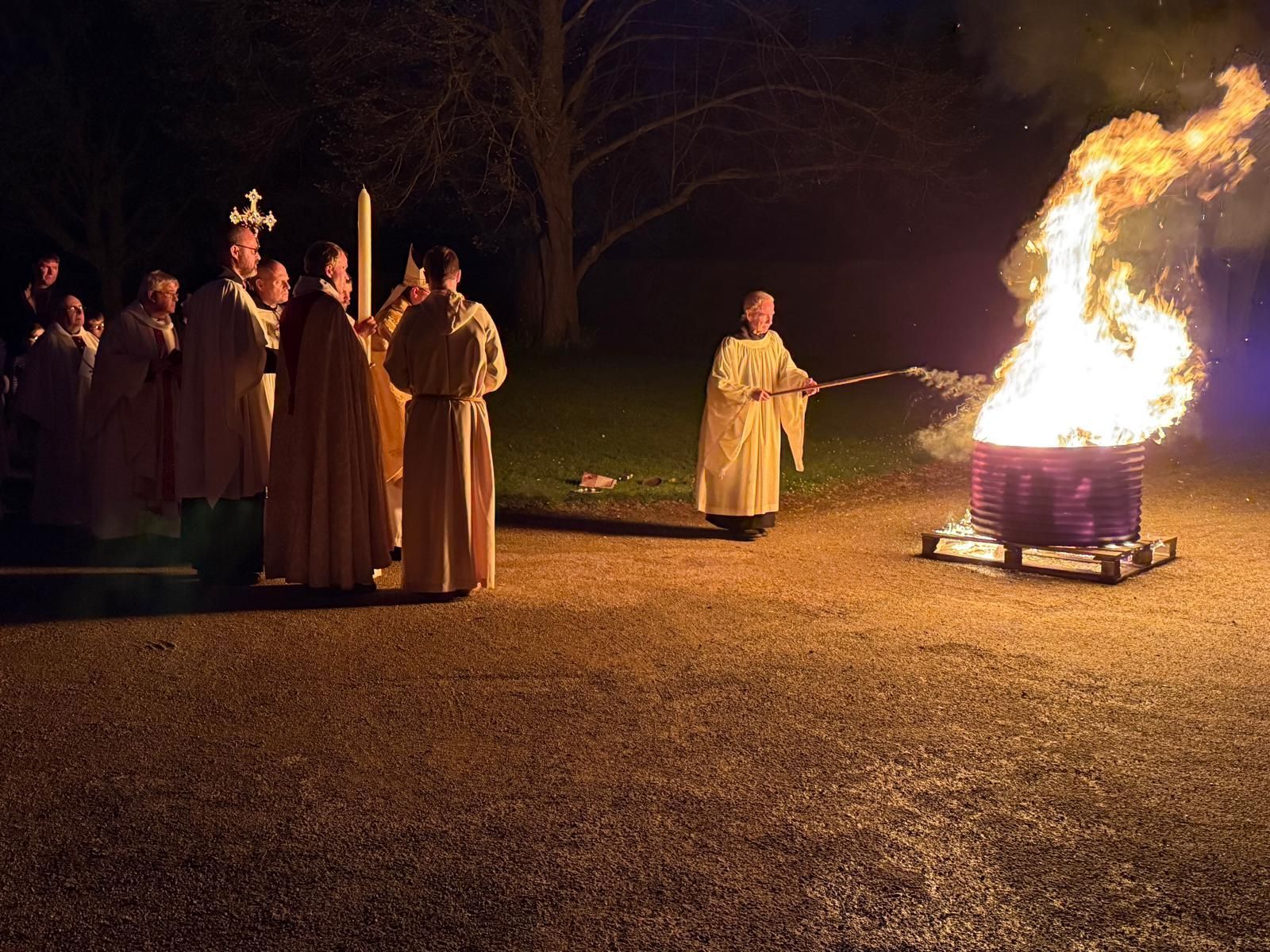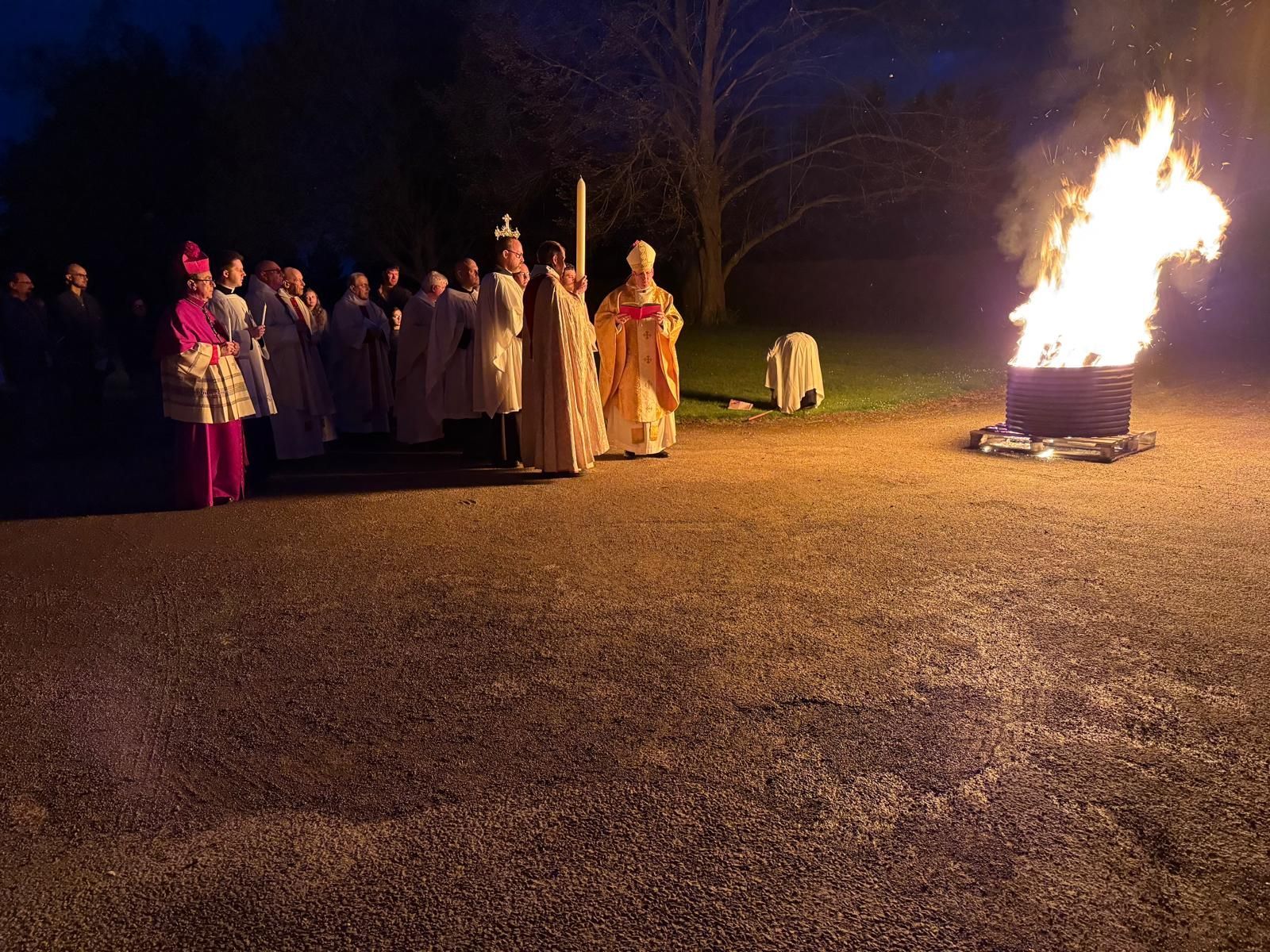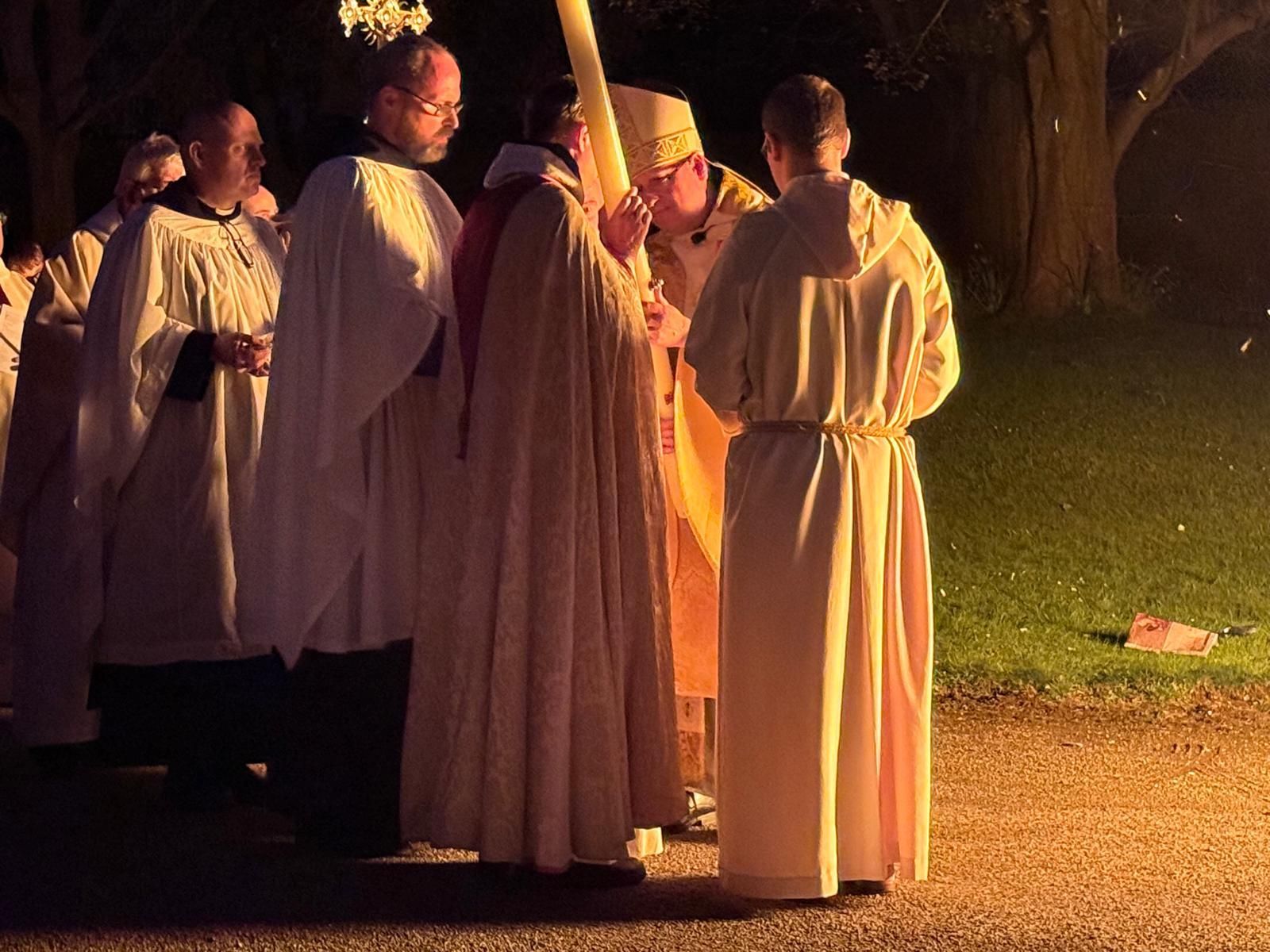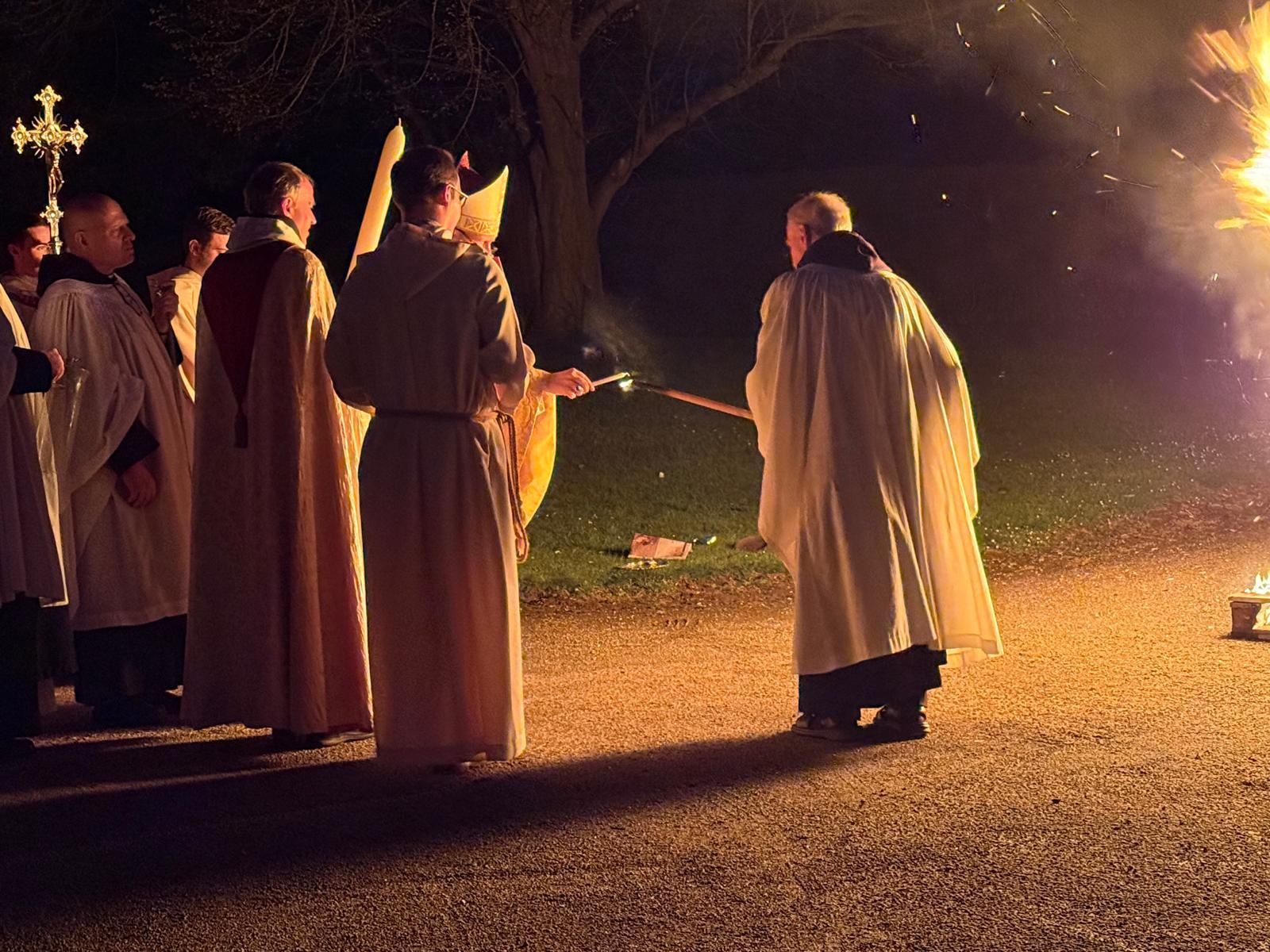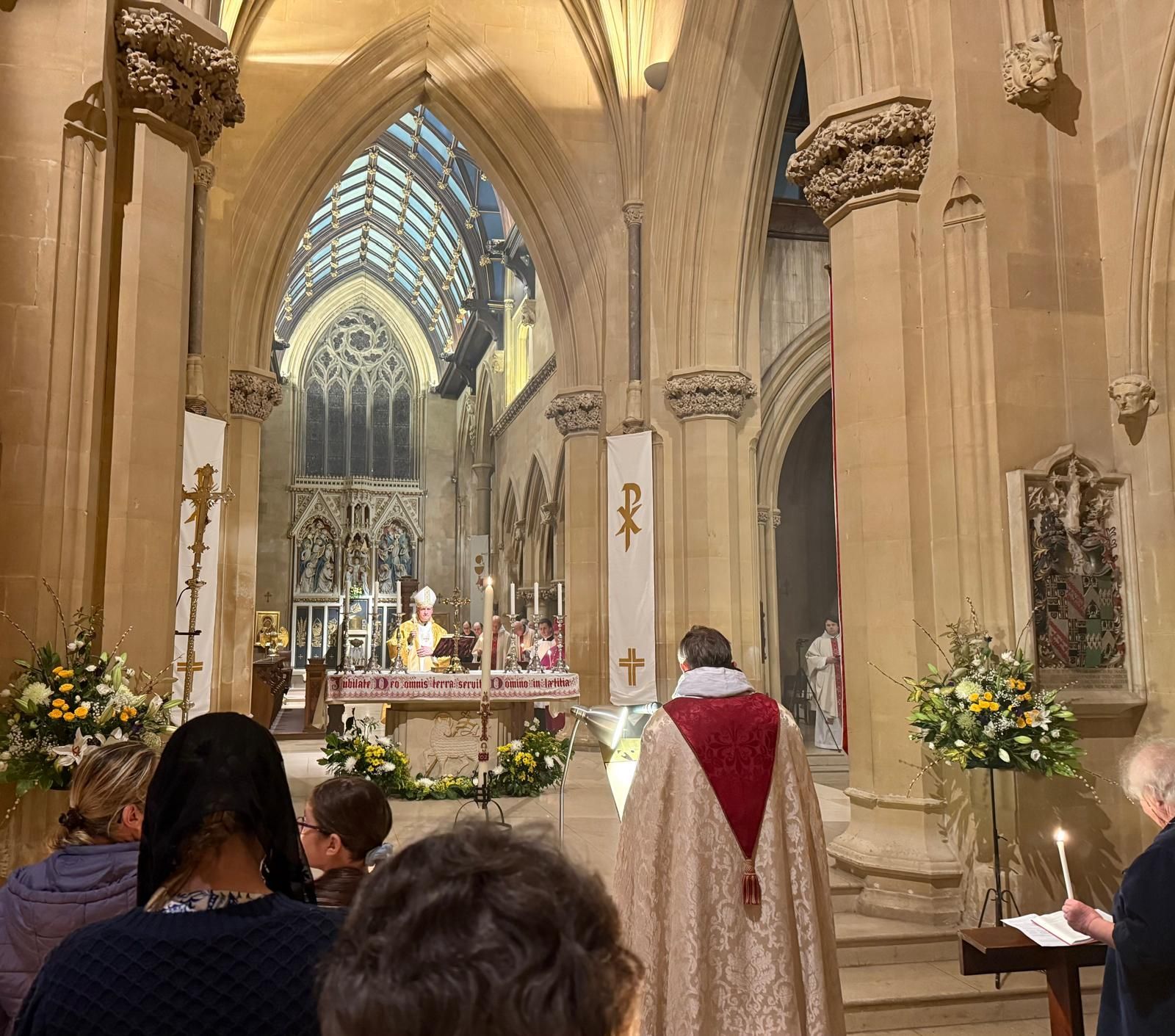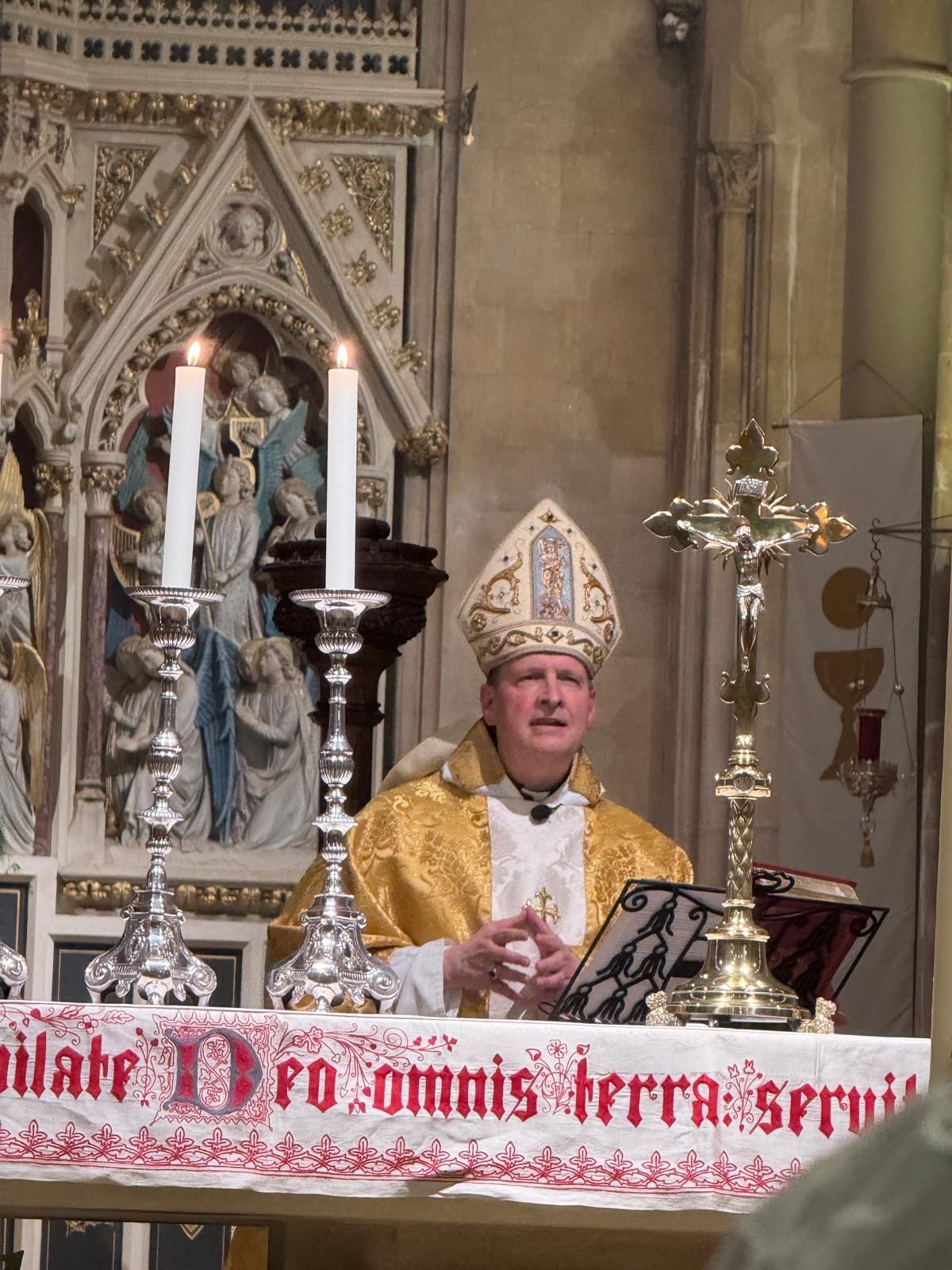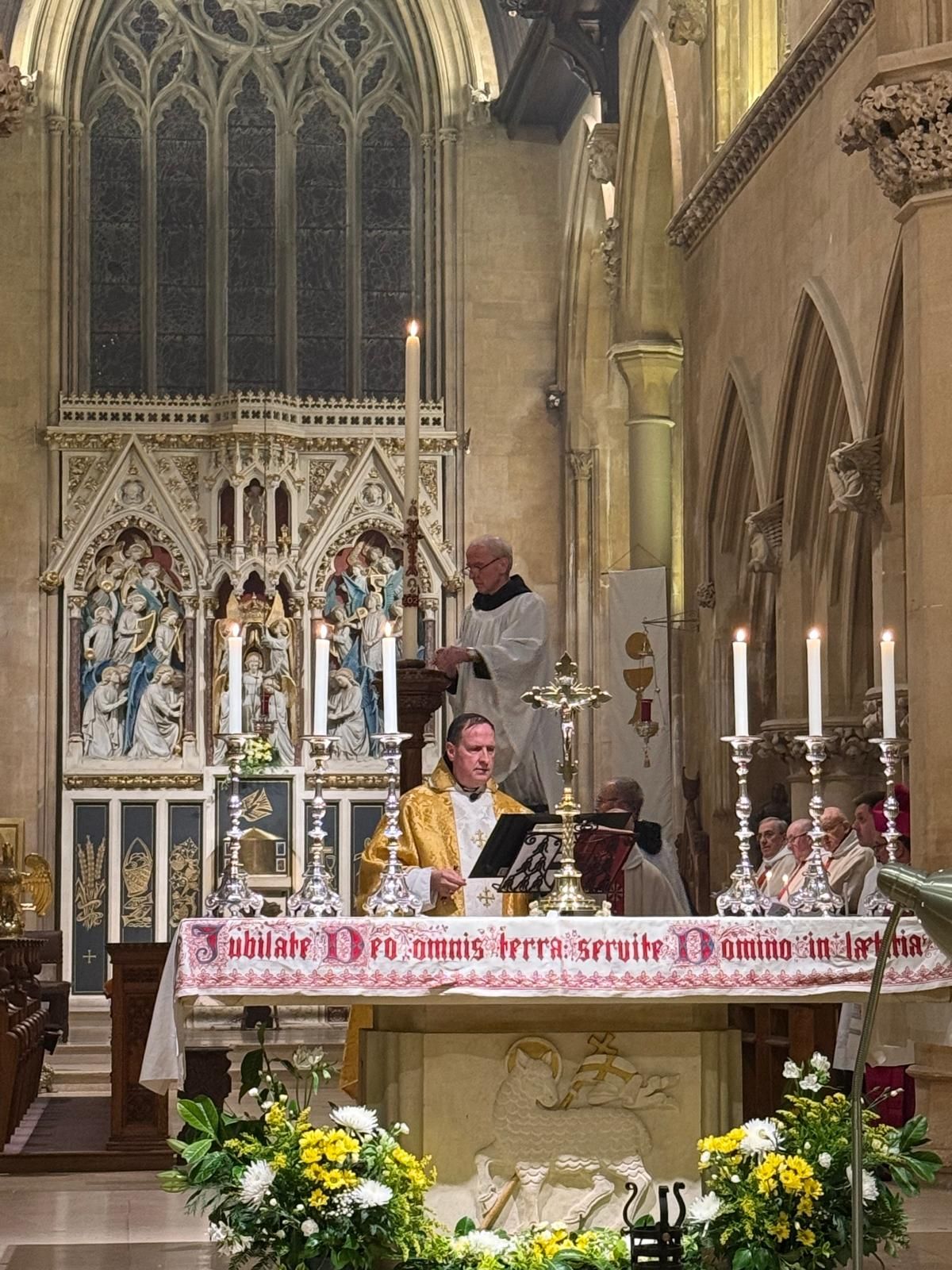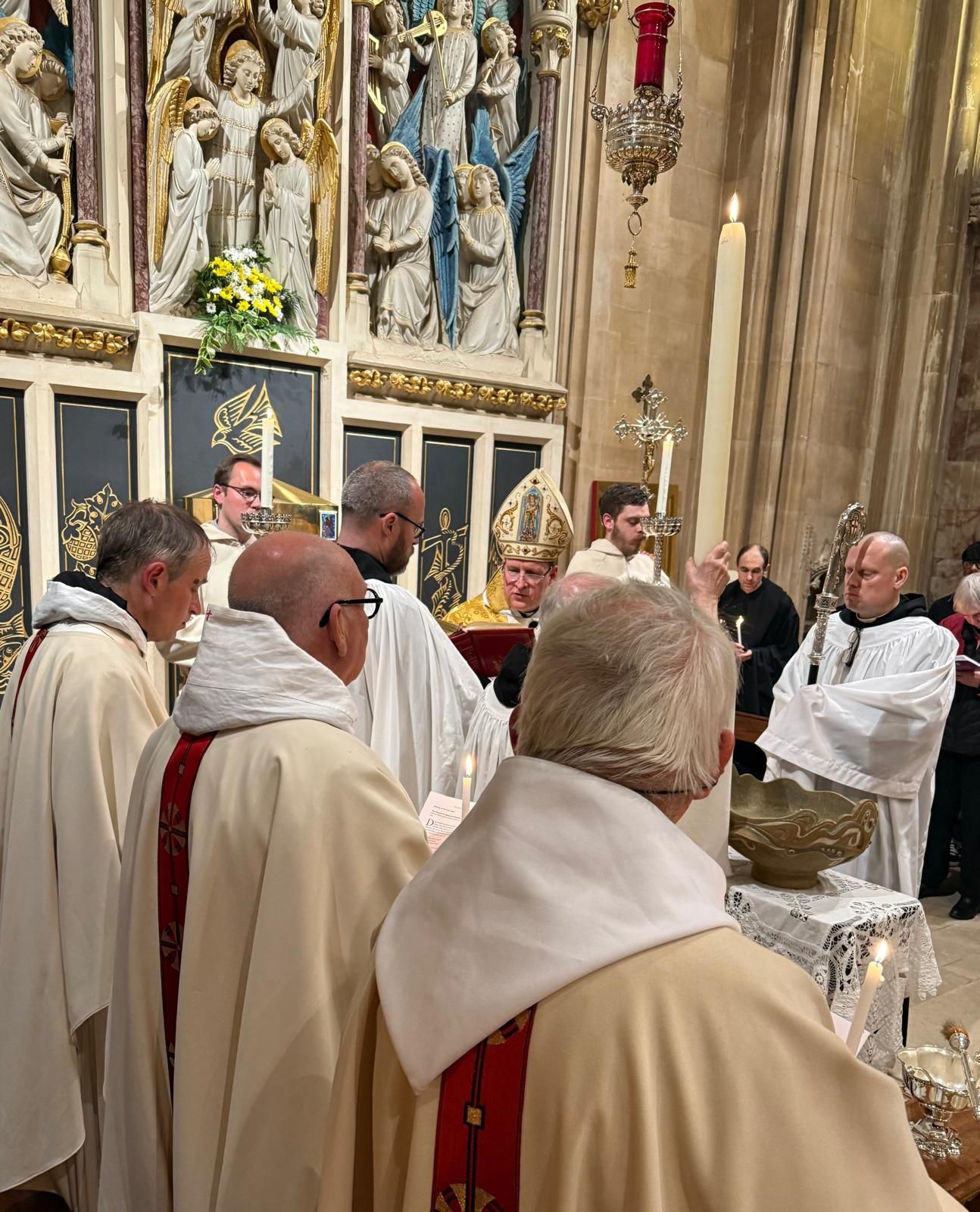Easter Vigil
"This is the night." Homily by Abbot Brendan
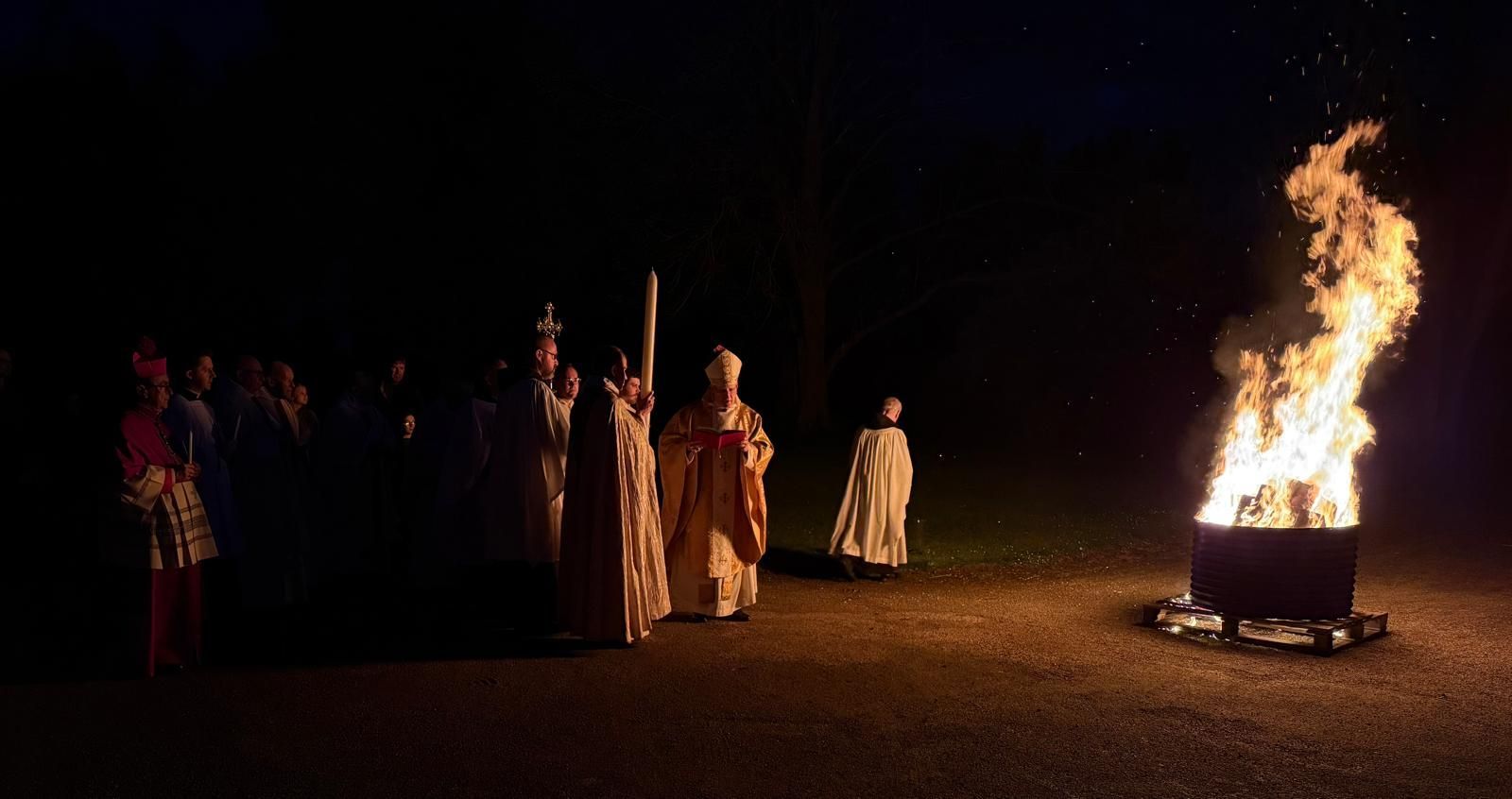
We say it every Sunday when we profess our Creed: “On the third day he rose again from the dead.” Sometimes it can sound like a dry historical note, a bare line in a list of beliefs, as if we were speaking about something long past.
But tonight, at the Easter Vigil, we know better. The Resurrection is not simply stated—it is announced in song! “Exult! Rejoice! Sound the trumpet of salvation!” These are not footnotes of faith; they are cries of joy echoing through the Church, rising like the flame from the Easter fire.
Even the bees are summoned into the song — the bees that made the wax, that shapes the candle, that burns the flame that announces the end to gloom and darkness. That candle is carried into the Church like the risen Christ coming from the tomb, and its light spreads from hand to hand until the whole building glows. Let this holy building shake with joy! we sing, just as the earth shook on that first Easter morning when the stone was rolled away and the guards fell like dead men. “Let this building be filled with the mighty voices” of your people.
“We are an Easter People” said Pope Saint John Paul II “and Alleluia is our song.” We sing because ordinary words are not enough to describe the mysteries we celebrate. We turn to poetry, because plain prose cannot hold the mystery and wonder. We sing with all creation: “Rejoice, O earth, in shining splendour, radiant in the brightness of your King! Christ has conquered! Glory fills you! Darkness vanishes for ever!” No song is more radiant, no proclamation more powerful, than the Exultet — this great song of light and love, of redemption and resurrection. It even looks back to the beginning of time and forgives old Adam his sin. “O happy fault, O truly necessary sin of Adam that earned so great, so glorious a redeemer.”
Tonight is also rich with signs — Fire. Light. Water. One of the most glorious sounds of this night is the splashing of water. Its striking, isn’t it, how the liturgy of Easter speaks as much of Baptism as it does of Resurrection.
We sing of passing through waters, of longing for living streams, of drawing joyfully from wells of salvation. We hear of the Spirit poured upon dry bones, of clean water being poured over us and renewing us. We hear St Paul say: “Do you not know that all of us who were baptized into Christ Jesus were baptized into his death?”
Why so much water, on the night of fire and resurrection?
Because through Baptism, the Resurrection becomes not just something we proclaim, but something we participate in. It is no longer just Jesus’ story — it becomes ours.
Baptism is the tomb and the womb: the place where we die with Christ and are born anew. In Baptism we are not just cleansed — we are clothed with Christ, made new in heart and mind, filled with the Spirit of the Risen Lord. “This is the night”, we sing “when Christians everywhere, washed clean from sin… are restored to grace and grow together in holiness.”
Tonight, St Paul tells us, we have been in the tomb. We have passed through death with Christ, and we have been reborn, so “just as Christ was raised from the dead by the glory of the Father, we too might walk in newness of life.”
This is the Christian life: not only to believe in the Resurrection, but to live it.
So tonight, dear brothers and sisters, we do not leave church the same as we came. We leave bearing the light of Christ, like Peter marvelling as we go home. Let our joy be deep, our witness radiant as we sing with our lives the new song of Easter: Alleluia.
